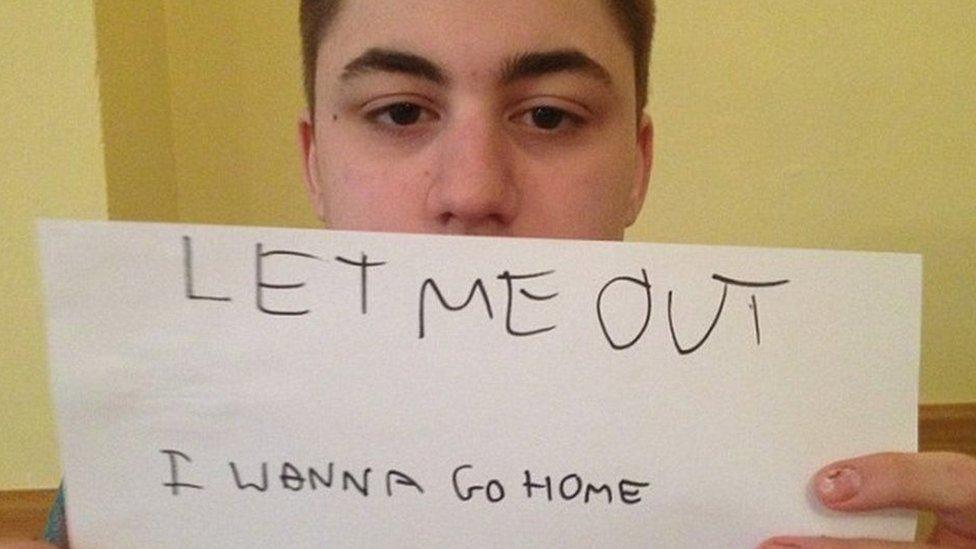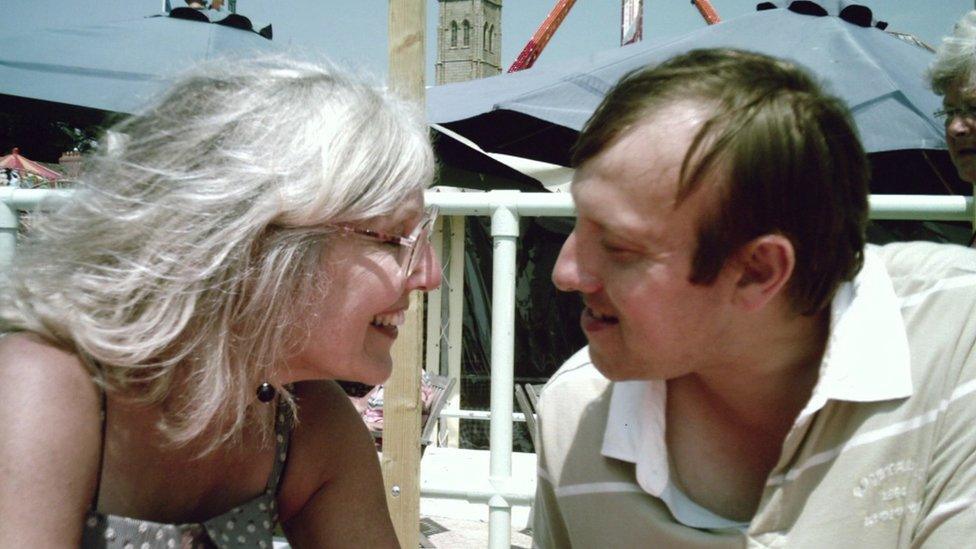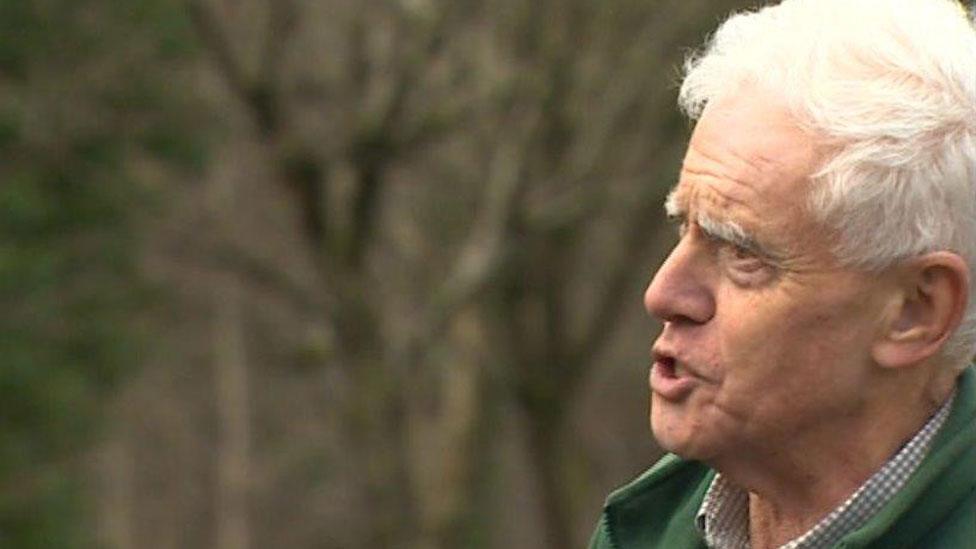People with autism 'die younger', warns charity
- Published

People with autism are dying earlier than the general population, often through epilepsy or suicide, a charity has warned.
Citing recent research carried out in Sweden, the charity Autistica described the problem as an "enormous hidden crisis".
The study, in the British Journal of Psychiatry, external, suggested autistic people die on average 16 years early.
The charity now wants to raise £10m for more research into the condition.
In the UK it is estimated 1% of the population - or 700,000 people - have autism and it causes difficulties in how they communicate and relate to others.
Epilepsy and suicide
The Swedish study looked at the health records of 27,000 autistic adults and used 2.7 million people as a control sample for the general population.
The research, carried out by the Karolinska Institute, found that those with autism and an associated learning disability, died more than 30 years early - with the average age of death being 39.
Autistica founder Dame Stephanie Shirley's son Giles died from a seizure aged 35
In this group of people, a leading cause of death was epilepsy.
Scientists still cannot exactly explain the link between autism and epilepsy, which is partly why the charity wants to raise the money over the next five years to enable more research.
The Swedish study also suggested that people with autism, who were not held back by any intellectual disability, died on average 12 years younger - at 58 years old rather than 70.
After heart disease, suicide was the most common cause of death for this group of people.
Past research has suggested that autistic women are more at risk of suicide than men and only half of autistic people who have considered suicide were categorised as depressed - although this latter point may be down to problems with communication in diagnosis.
The research, which was published online in November 2015, was carried out by Dr Tatja Hirvikoski, who described her findings as "shocking and disheartening" and she said there was an "urgent need for increased knowledge".
'Shameful'
Autistica's chief executive Jon Spiers told the BBC the number of deaths in autistic adults was an "enormous hidden crisis".
"The inequality in outcomes for autistic people shown in this data is shameful," he said.
As a "spectrum" condition, it impacts on people in different ways and has symptoms that range from mild to very severe.
Around a quarter of people with autism speak very few or no words, while statistically only 15% go on to find full-time employment.
And almost three-quarters of people have at least one associated mental health condition, while 40% have two, the charity said.
Autistica also wants the government to carry out a national autism mortality review, and a petition demanding this action will be delivered to Downing Street later in the year.
Mark Lever, chief executive of the National Autistic Society,, external said the situation could be even worse in the UK.
"We have no reason to believe the situation would be that different here," he added.
A Department of Health spokesperson said: "We have made monumental strides in the way we treat conditions such as autism in this country, but we must speed up progress even further.
"That is why we are working alongside people with autism, and their carers, to make sure they have access to healthcare with adjustments made for their conditions."

Gill described watching her daughter have seizures as 'shocking and painful'
Gill is the mother to Ellie, 19, who has autism and recently began having seizures.
She said: "Seeing your child suffer a seizure is shocking and painful enough.
"To know that as someone with autism they are also more likely to die early from epilepsy is a double blow.
"We need proper answers and we need them now. We cannot simply stand by and watch people with autism die because of a lack of research and specialised care."

Autism facts
The cost of autism to the UK economy is estimated to be £32bn a year, the bulk of which is due to life-long care, the charity Autistica said.
Around £4m a year is spent on UK autism research.
Most people with autism are adults, yet little is known about how the condition changes over time. Only 2% of research funding has been focused on lifespan research.
In early infancy, some children with autistic spectrum disorder do not babble or use other vocal sounds.
Older children have problems using non-verbal behaviours to interact with others - for example, having difficulty with eye contact, facial expressions, body language and gestures, says the NHS.

- Published16 March 2016

- Published13 March 2016

- Published7 January 2015
- Published8 January 2016

- Published4 March 2016
